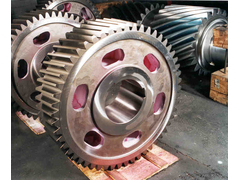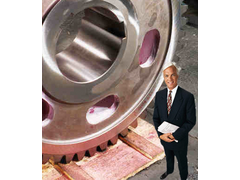you could maybe go even thiner than 18g if you have additional support for seats and feet etc, though this may not work out lighter anyway.


opening a subject thats been done to death, but can someone tell me what the weight a steel and aluminium floors come in at roughly? Looking to save
some weight but not wanting to end up with floor like a peice of tin foil!!
james
I think it was reconed you save maybe 10kg going for aluminium instead. however, you can use 18g steel instead of 16g, and it makes a significant
contribution to the car's stiffness. plus, you don't have the weight of the rivets. It might be possible to have a structural aluminium
floor but it would involve fancy bonding stuff that I decided was too much hassle.
I votes steel.
To get comparable stiffness the ali has to be at least 1,75 times thicker than the steel.
If you glue you have to use something nonelastic (I have a vague memory of someone on the list recommending Aralidte). If you rivet you HAVE to use
structural rivets and not one of the softest grades of ali.
Based on 8 times hole dia between rivets, some info shared on this thread
and my own calculations.
Unless you are really desperate for the weight saving, I vote steel.
I vote steel as well easier,cheaper,stronger,tried and tested.
Cheers,
Bob
For the road STEEL
and welded too in my opinion. truely structural then, and no chance of falling off (one would hope, anyway!)
you could maybe go even thiner than 18g if you have additional support for seats and feet etc, though this may not work out lighter anyway.
there was a story once on the aussie lists of someone being speard by an object thro an ali floor.
its easy to work out weight. Just calculate the mass in mm of the panel.
basically, a litre of water has a specific gravity of one, and fits into a cube 100 x 100 x 100 mm and weighs a kilo.
It follows that alu, at approx 3 SG will weigh 3 kilo per 100mm cubed block.
Steel is approx 7.7 kilos.
using these facts you can work out the weight of your chassis based on the amount of material used and referenced to its mass per kg
atb
steve
An ally floor will add very little to your chassis other than stopping you falling onto the road, and you chassis will have several hundred little
holes in it.
A steel floor, welded in, will add to the strength, it will probably distort (mine did), but will, as steve says, protect you from any nasty road
debris, and leave the structural integrity of your chassis intact.
i fully welded mine and it too distorted.
but as you can only see it under the car, its no big problem!
Adding 2 extra bars across to the tranny tunnel will act to stop it pinging as well as giving soemwhere to mount the seats 
atb
steve
Steel! I have seen alu floor going off....not from Locost but one Ferrari, Car became Flintstones-car...:)
Get some more ponies out of your engine if U think its heavy...:)
What are you doing up so early TTK77?

I was working... Not so much to do at work so good time to surf in web..
Not so much to do at work so good time to surf in web.. And now "few" beers and thinking of my Locost
project...
And now "few" beers and thinking of my Locost
project...
 Book has arriwed and pipes are ordered...
Book has arriwed and pipes are ordered... (sorry my poor english..)
(sorry my poor english..)
For gods sake don't fit an ally floor!! who knows it might fall out one day, and you could die! Best avoid those nasty bike engines too, far too
fast and noisy and scary!! And don't forget a huge windscreen will stop anything from hitting you in the mush and killing you instantly. Infact a
locost built from armour plate, with loadsa airbags and stuff would be really safe............but no fun at all :-(
lightest=fastest
so my vote is for an ally floor.
P.S westfields have used it for years.
Al.




and before anyone asks, yes mine is ally
and i check the rivets on a daily basis- Gulp!
anything is a risk
dont suppose there is a bike engine in your car cos the bike died of old age - more likely the rider of young age.
Ive had large objects smack into winscreens 2 or 3 times - from pheasants to rocks.
Its just not being in the wroung place at the right time.
On my car, I cant see how even the steel floor was up to mounting the seats directly without some movement. Alu would make floor movement worse.
Two other ways of thingking are :
1. will saving a few kilo make the car significantly faster, as a worthwhile trade off against risk?
2. a few more hp will alow you to carry more kg without drop in performance. Choose the right engine to start with and you wont need to scrimp with
weight saving.
A mate of mine just changed his cbr600 to a fireblade. Summat like 50hp more. But less than 1/2 a sec he tells me on acelleration. He kinda regrets
the cost of change as he thought it would be better.
It all gets to be diminishing returns after a certain performance level.
Best performance gain - junk the two wheels, and all the body work and keep the engine in a bike!
and that comes to my point one above - weigth vs risk...
atb
steve
Yup i agree, it all comes down to the personality of the builder i guess, my philosophy has always been, ya gonna die sometime, so no point in
worrying about it too much, it could be the number 9 bus that gets you.
On this particular point though, i have to stand by the fact that Westfield and ultima have used ally for the floor for years and afaik, nobody has
fallen through yet or been spiked by a large pointy object.
If you had a serious crash in a seven, i dont think it would be the floor material you would be worrying about.
And the cbr600 v cbr900 bit just reinforces my point Lighter=better=faster.
Or alternatively if your worried about your botty, use 1/4 plate for the floor and stick a chevy V8 up front.

Al.
Originally posted by stephen_gusterson
anything is a risk
dont suppose there is a bike engine in your car cos the bike died of old age - more likely the rider of young age.
Ive had large objects smack into winscreens 2 or 3 times - from pheasants to rocks.
Its just not being in the wroung place at the right time.
On my car, I cant see how even the steel floor was up to mounting the seats directly without some movement. Alu would make floor movement worse.
Two other ways of thingking are :
1. will saving a few kilo make the car significantly faster, as a worthwhile trade off against risk?
2. a few more hp will alow you to carry more kg without drop in performance. Choose the right engine to start with and you wont need to scrimp with
weight saving.
A mate of mine just changed his cbr600 to a fireblade. Summat like 50hp more. But less than 1/2 a sec he tells me on acelleration. He kinda regrets
the cost of change as he thought it would be better.
It all gets to be diminishing returns after a certain performance level.
Best performance gain - junk the two wheels, and all the body work and keep the engine in a bike!
and that comes to my point one above - weigth vs risk...
atb
steve
You are only talking about a couple of Kgs here. This isn't F1, you just won't even notice it. A gallon of petrol weighs almost 4.5Kg (10lb)
and you are going to carry petrol aren't you? You could always go on a diet I suppose.
ive just worked it out based on density.
I recon a single 1.2 x 2.4 sheet of steel weighs 35 kilos approx
an alu sheet would weigh approx 13 kilo in comparison
all assumed as 1.6mm thick
atb
steve
[Edited on 11/10/04 by stephen_gusterson]
Sorry to be thick Steve, but what's the 2.4 represent?
Sorry!
Mister Thickee
EDIT: It's metres isn't it! Must be Monday morning!
[Edited on 11/10/04 by James]
as proof of James's dimensional misunderstanding problems, I thought Id post a piccy of the gears that James had rejected from McClaren 
atb
steve


Rescued attachment gears.jpg
They look about right to me! 
You're just showing them out of scale!
One can clearly see the wooden bases they are on are made from matchsticks.
James
[Edited on 11/10/04 by James]
=8'x4' which is sheet size in imperial measurement. 35 kilo sounds a bit on the heavy side. You don't use a full sheet for a floor anyway, probably half once you've cut it to shape.
It was all a decimal point mixup.


Rescued attachment gears.jpg
quote:
Originally posted by Peteff
=8'x4' which is sheet size in imperial measurement. 35 kilo sounds a bit on the heavy side. You don't use a full sheet for a floor anyway, probably half once you've cut it to shape.
not a fake pic
http://www.keller-getriebe.de/service2.htm
I thought 35 kilos was high too, here is how I got to it :
work out the cubic size =
1200 x 2400 x 1.6mm = 4608000mm cubed mm
= 4.6 litres of steel ( div by 100x100x100 which is the volume of a litre)
the same volume of water, at sg of 1, would weigh 4.6 kilos.
but steel is approx 7.7 times more dense
so
7.7 x 4.6 = 35.42 kilos.
atb
steve
1220x2440 16g steel= 37.38861kg
16g Alu = 12.81215kg
3mm Alu = 24.02278kg
1 metre 16g rhs = 0.395968kg
So a 3mm floor would still be a weight saving.
how much do the rivets weigh?
and how much do you save from the holes you've drilled out of the chassis?
(getting silly now)
I know I've said this before, but...
...the best way for me to reduce the all-up weight of my car is for me to lose weight! 
Faffing around trying to save the odd kilo here or there is a waste of time until then.
Mind you, the all-up weight of my car (inc. a full tank of petrol) was 595Kg at the SVA, so I don't think that's too bad for a book car with
steel floor, tunnel sides & footwell fronts.
rgds,
David
Nice one david. I'm quite interested to hear weights, to get an idea for what ours might weigh. it's +4" with a v8 so will be a bit heavier.. be nice if it was under 700.
We'll have to weigh a rivet after it's been popped so we don't include the stem and include the weight of the hole it's fitted to
in both sheet and tube,  well you started it. Blueshift have you read the first page ?
well you started it. Blueshift have you read the first page ?